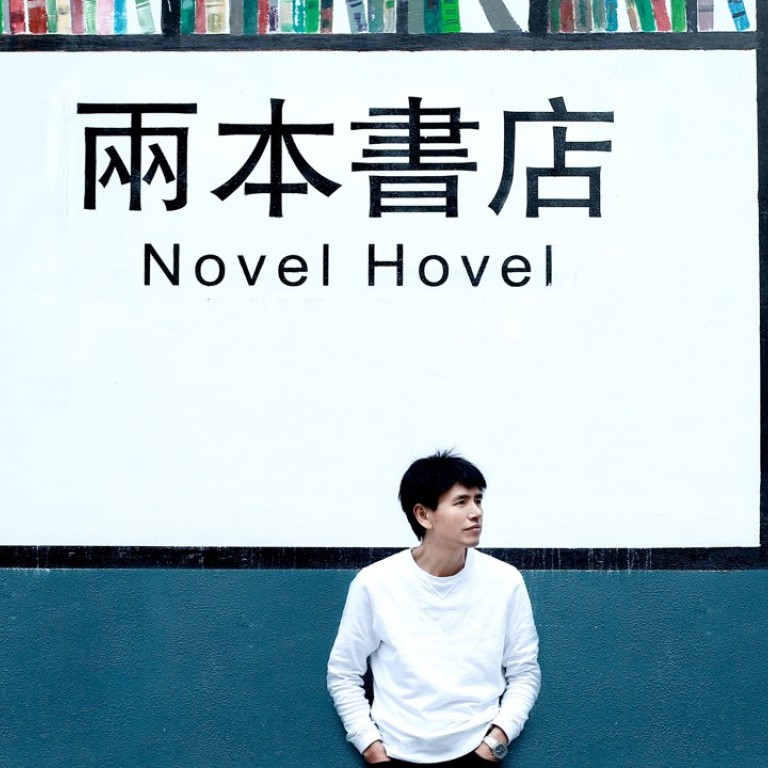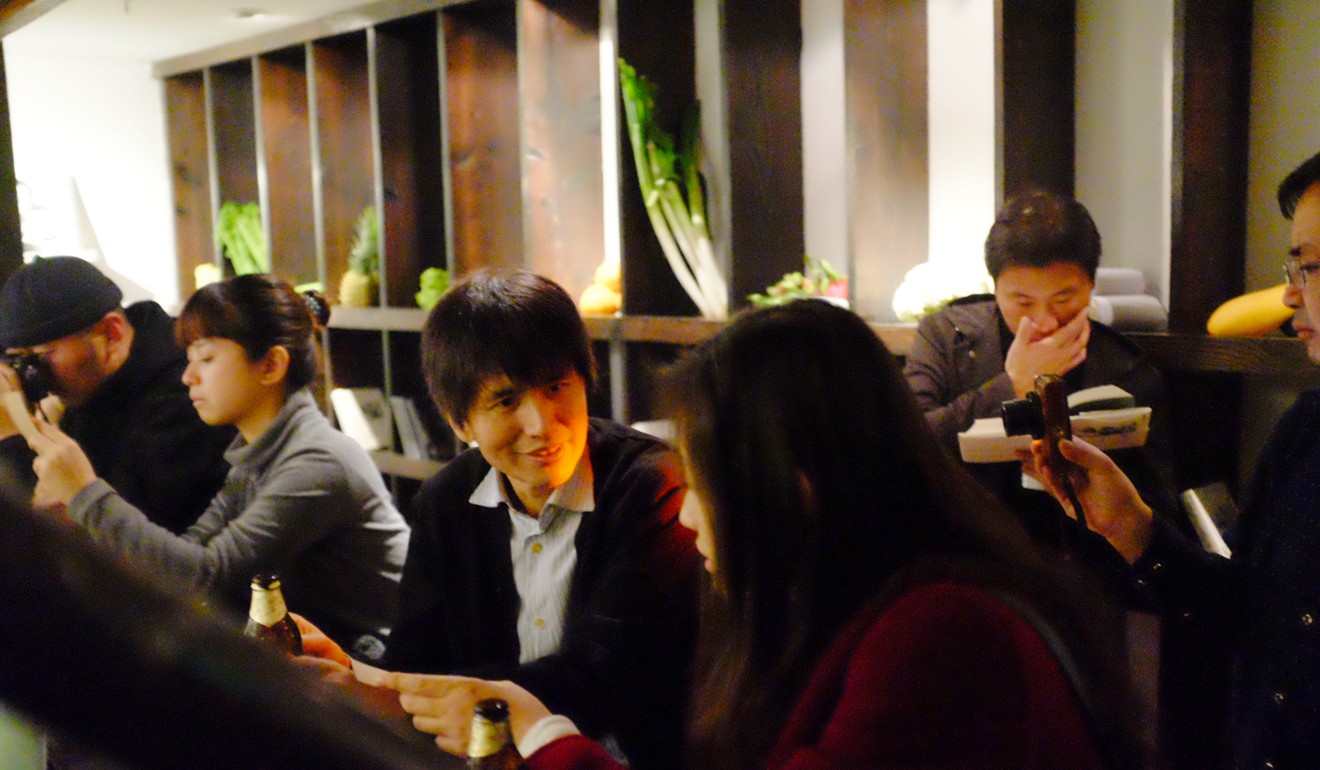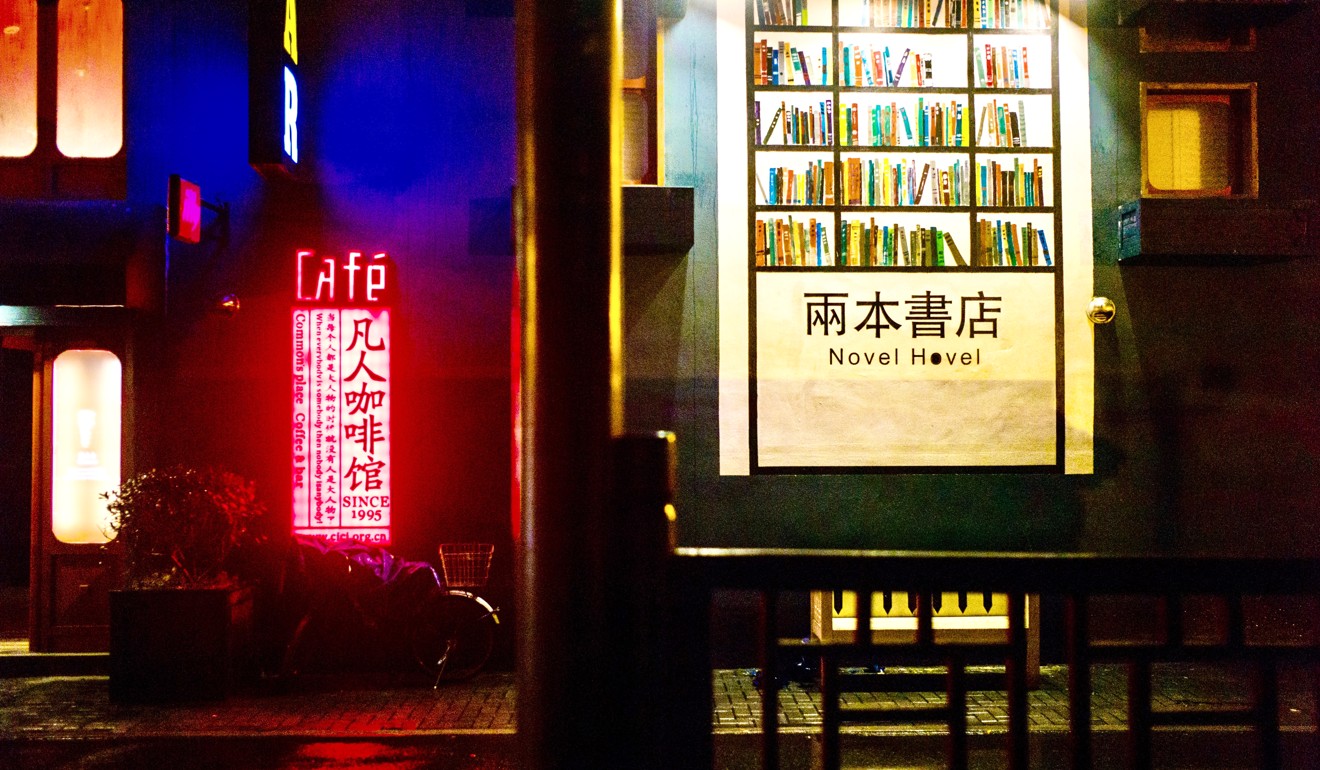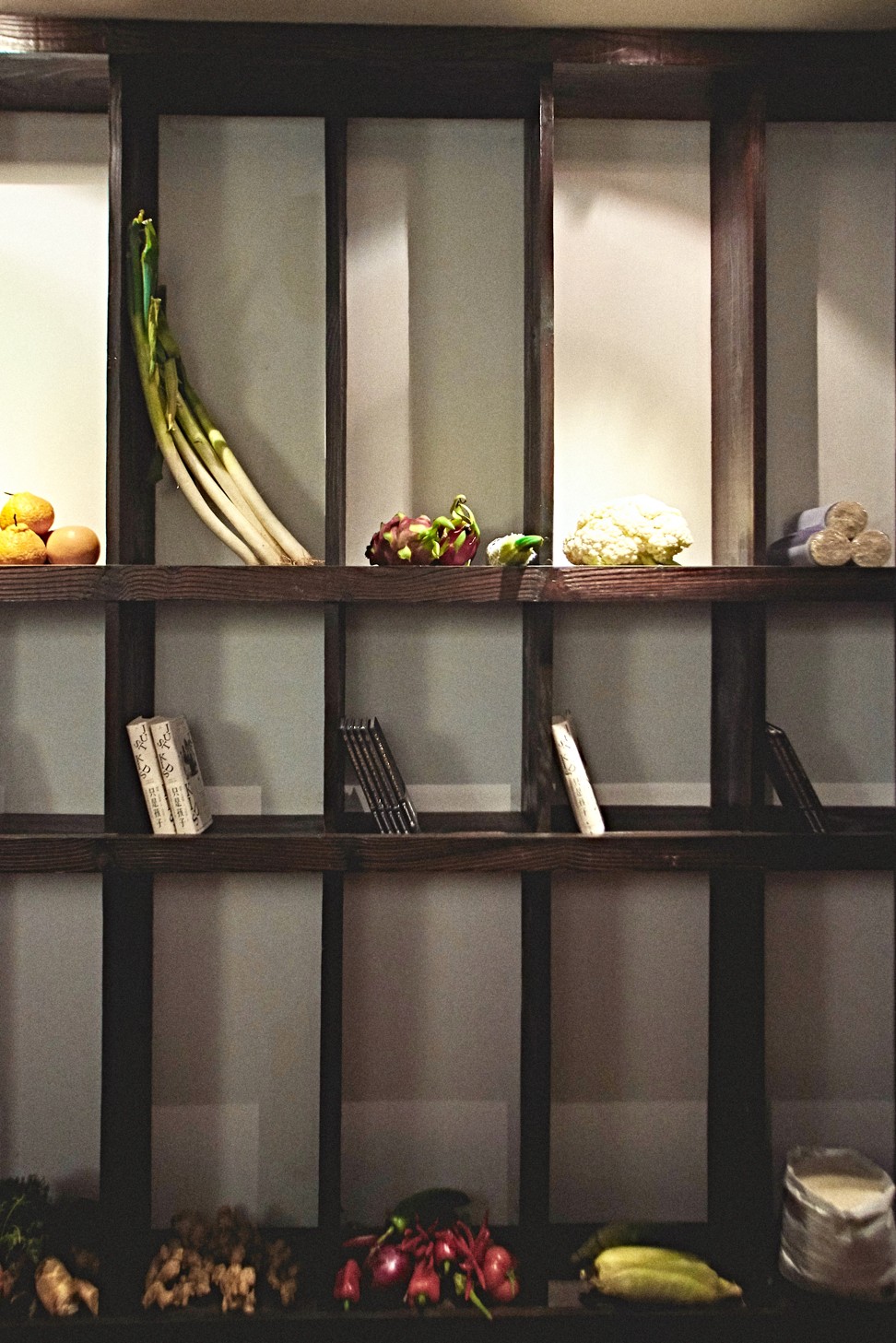
This Chinese man’s bookstore only sells two books a fortnight – and he loves it
Li Jiawen’s shop stocks just 20 copies of two titles every two weeks, recommended by a guest, purely to spread the joy of reading
In an age of the rising popularity of e-books, Li Jiawen went against the tide to open a bricks-and-mortar bookstore that only sells two books every two weeks.
Opened last March, the Novel Hovel shop in Hangzhou in eastern China has been portrayed by Chinese media as a “bizarre business” for its minimalist philosophy and peculiar decor.
Hidden in a cafe also owned by Li, the shop puts fresh vegetables on its shelves alongside books as a reference to “spiritual food”. Some internet users in China drew parallels with the Morioka Bookstore, a Tokyo-based shop that opened in 2015 and gained fame for selling only one title a week.
Li, near 50, is an icon in his local literature and arts community.
Two years after relocating from the city of Guilin in Guangxi to Hangzhou in 1993, he opened the Commonplace Coffee & Bar, one of the first cafes in the city. At that time, drinking coffee was still considered part of a bourgeoisie lifestyle only available in hotels.
Over the next two decades, Li’s cafe has become a go-to place for art enthusiasts with numerous movie screenings and cultural events.
As a lover of print, his obsession for owning a bookshop has never faded.
While China’s publishing industry has grown by leaps and bounds with hundreds of thousands of new books printed every year, Li aimed for something more minimalist – by inviting one person to recommend two books every two weeks and explain why they like reading them in a few sentences.
The rules are simple: no self-help titles, each book only has 20 copies for sale (Li buys most of them online) and no stock refills if they sell out.

The invitation letter to find recommended books starts with a quote from the American poet and essayist Ralph Waldo Emerson: “If two people read the same book, a bond is created between them.” The letter then adds: “ Your advice and sharing will be the bond.”
The 46 people who have provided book recommendations so far include publishers, writers, photographers, shopping centre consultants, actors and journalists. The youngest was a 16-year-old girl in high school who Li met at his cafe. She recommended Lolita by the Russian American novelist Vladimir Nabokov and Crystal Boys, a novel focusing on love in the gay community written by the Taiwanese writer Pai Hsien-yung in the 1980s.
The spectrum of recommended books ranges widely from French physicist Christophe Galfard’s The Universe in Your Hand and the Russian-American author Joseph Brodsky’s collection of essays On Grief and Reason. Also featured were Japanese scholar Kazkuzo Okakura’s The Book of Tea and former Chinese Communist military and political leader Fang Zhimin’s Lovely China, a collection of letters he wrote in prison during China’s civil war in 1935.
To kick-start his venture, Li recommended Just Kids, a memoir by American singer and songwriter Patti Smith and the Italian physicist Carlo Rovelli’s Seven Brief Lessons on Physics.
“All the books for sale are bought online, sometimes at full price. And we don’t accept sponsorship from publishing houses that offer us books for free for marketing purposes,” Li said.

For instance, American author Edgar Snow’s Journey South of the Clouds, a lesser-known collection of articles he wrote during travels in southern China in the 1930s, was sold for 9 yuan (US$1.40) when it came out in simplified Chinese in 2002, but later went out of print. Li eventually found five copies, each costing him 256 yuan, and finally sold two copies.
“A bookstore is not a profitable business. Perhaps nine out of 10 bookstores aren’t profitable … but at least I have space. For now, the cafe keeps the bookstore going,” Li said.
He used to own eight branches of Commonplace Coffee & Bar in Hangzhou during its heyday, a “carnival” period he said for operating coffee shops from 2002 to 2011. But rising rents have gradually squeezed him out of the market, with only one branch surviving. His passion for reading and art, however, have sustained him.
He created another brand three years ago, Mu Xin Coffee & Bar, a place dedicated to his literary idol Mu Xin, the pen name of a Chinese poet and artist who suffered torture and imprisonment during China’s Cultural Revolution and later moved to the United States.

Before paying tribute to Mu with a cafe, Li experimented in selling Mu’s books in Artone, an art space he owns. The pop-up “book shop” paved way for his latest two-book venture whose logo is an open book and name – Novel Hovel – suggests “an old, warm and lovely house of stories”.
“It’s opened for the generation born after 1990. They are better at independent thinking than us,” Li said. “As long as the bookstore exists, it keeps enriching itself. When we have 1,000 recommenders, it will be more fun.”

